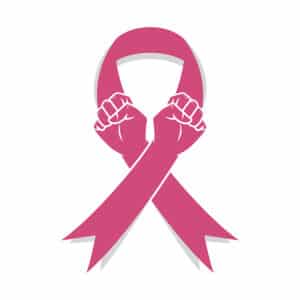By Barbara Pierce
Many health issues affect women differently from men and in ways that have an impact on diagnosis and care.
For instance, a heart attack in a woman presents different symptoms from that of a man, putting you at risk for misdiagnosis.
Doctors are becoming increasingly aware of how health issues in women call for different approaches that recognize and met their physiological differences. Men and women may have the same condition, but different symptoms and may require different treatment.
Here are six of the most common health concerns impacting women and what you can do to manage your risk:
1. Heart disease
 “Heart disease is the number one killer of women,” said Heather Evans, executive director, American Heart Association, Mohawk Valley.
“Heart disease is the number one killer of women,” said Heather Evans, executive director, American Heart Association, Mohawk Valley.
Heart disease in women remains underdiagnosed and undertreated.
“The most typical symptom of a heart attack is chest pain,” said Evans. Some type of chest pain, pressure or discomfort that lasts more than a few minutes or comes and goes.
Women are more likely than men to have symptoms that are not chest pain.
“Pain down an arm or in the jaw can be felt by men and women,” continued Evans. “Shortness of breath, back pain, shoulder pain and gastrointestinal distress are symptoms a woman has that can be a heart attack.”
Elsewhere in this issue of In Good Health you will find more details about heart disease in women.
2. Stroke

More women die from stroke than men. Many of the risks for having a stroke are silent — like high cholesterol and high blood pressure. You’re just fine one minute, and the next minute you’re in a hospital bed. (If you survive.)
Regarding the signs of a stroke, physician Scott Brehaut, medical director of The Stroke Center at MVHS and spokesperson for the American Heart Association, suggested paying attention to the following:
“Use the abbreviation ‘FAST’ to know the signs:
F: face drooping
A: arm weakness
S: slurred speech
T: time to call 911”
“The quicker you get treatment, the better your chances of not having any effects from the stroke,” he added.
Risk factors that put you at higher risk for a stroke include smoking, being older, being a woman, African American or Hispanic and having a close relative who has had a stroke.
Eighty percent of strokes can be prevented, according to the American Heart Association. Eat better, be more active, quit tobacco, get adequate sleep, manage weight, blood pressure and blood sugar.
3. Diabetes

Diabetes is a disease in which blood sugar (glucose) levels in your body are too high.
About one in every nine women in the U.S. has diabetes; it affects women and men in almost equal numbers. However, diabetes affects women differently than men.
Compared to men, women with diabetes have a higher risk for heart disease, kidney disease, blindness, depression, yeast infections, urinary tract infections and vaginal dryness.
“Some of the common symptoms of diabetes are frequent urination, extreme thirst, extreme hunger, slow healing wounds, blurred vision and vaginal yeast infections,” said Janet Brown-Friday of the American Diabetes Association. “If you have any of these symptoms and are concerned about diabetes, ask your doctor to do blood testing to evaluate your blood glucose [sugar] level.”
Gestational diabetes is a condition that can occur during pregnancy in which your glucose level goes up and other complications may develop.
The ADA recommends several lifestyle changes to reduce the risk of developing Type 2 diabetes, including walking or doing any physical activity, following a healthy diet — such as the Mediterranean diet — limiting your portion sizes of carbohydrates like white bread, white rice and white pasta and avoiding sugar and sugary drinks.
4. Maternal health issues

From iron-deficiency anemia to high blood pressure, the changes a woman experiences during pregnancy can impact her health.
Preconception care is important, whether or not you have medical conditions, experts advise. If you have a high-risk condition, like a major cardiac disorder or neurological issues, discuss your plan with your physician, especially if you take medication. Also, do not conceive immediately after weight loss surgery.
During pregnancy, make sure you have adequate nutrition and get the appropriate immunizations. Continue to exercise as you do normally; consult your health care provider if you have questions.
5. Urinary tract infections
 Urinary tract infections occur when germs get into the urethra and start to multiply. Symptoms of a UTI include frequent urination, pain or burning when urinating and cloudy urine. While a UTI can go away on its own, a physician can prescribe antibiotics if necessary. If UTIs become a recurring problem, tests can reveal if the urinary tract is normal.
Urinary tract infections occur when germs get into the urethra and start to multiply. Symptoms of a UTI include frequent urination, pain or burning when urinating and cloudy urine. While a UTI can go away on its own, a physician can prescribe antibiotics if necessary. If UTIs become a recurring problem, tests can reveal if the urinary tract is normal.
6. Breast cancer
 Protect your risks by getting screened with mammograms (usually by age 40), being aware of how your breasts look and feel is an important part of early detection; share any changes with your health care professional.
Protect your risks by getting screened with mammograms (usually by age 40), being aware of how your breasts look and feel is an important part of early detection; share any changes with your health care professional.
There’s no sure way to prevent breast cancer. But there are things you can do that might lower your risk, including limiting alcohol, staying at a healthy weight and being physically active.
